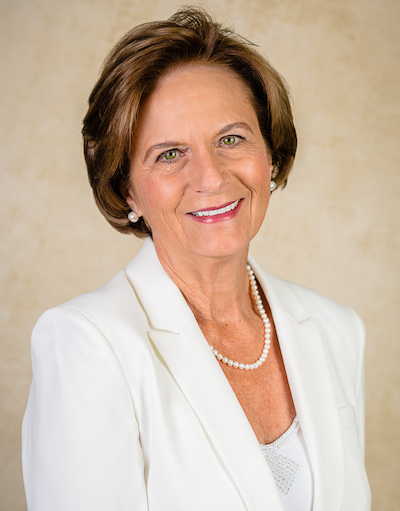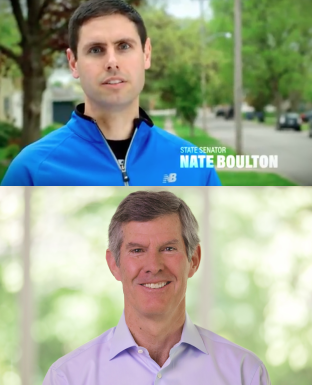The Iowa Association of Business and Industry’s political arm, the Iowa Industry PAC, released its first round of state legislative endorsements today. According to the PAC’s chairman Kirk Tyler, these “Friends of Iowa Business” have “demonstrated a commitment to improve Iowa’s business climate so that employers can create more jobs and grow the economy.”
During legislative sessions, the Iowa ABI often appears to act as a proxy for the Republican Party of Iowa, so I wasn’t surprised to see that most of Iowa Industry PAC’s favored candidates are Republican incumbents and challengers. But look who else made the list of “Friends of Iowa Business”: Democratic State Representatives McKinley Bailey, Brian Quirk, Doris Kelley, Dave Jacoby, Geri Huser, Larry Marek, and Mike Reasoner, and Democratic State Senators Rich Olive, Wally Horn and Matt McCoy.
Bailey, Quirk, Kelley, Huser and Marek were members of the “six-pack” that blocked passage of a prevailing wage bill in 2009. (The sixth Democrat who refused to support that bill was Dolores Mertz; she is retiring.) Jacoby spoke out against a union-backed “fair share” bill during the 2010 session. Reasoner serves on the House Commerce Committee and was able to keep a payday lending bill stuck in subcommittee during this year’s session.
A few of the Iowa Industry PAC’s endorsements mean little of consequence. Geri Huser and Brian Quirk represent safe Democratic districts, as does Dave Jacoby, whose only opponent is a Libertarian. Horn doesn’t have a Republican opponent either, and McCoy’s GOP challenger is an anti-abortion extremist.
On the other hand, some of the endorsed Democrats are among the GOP’s top targets. First-termer Marek represents the difficult southeast Iowa terrain of House district 89. He squeaked by in 2008 and faces the same opponent for a second time this year, without Barack Obama’s coat-tails.
Republicans also have a registration advantage in House district 9 in north-central Iowa, which Bailey has represented for two terms. The ABI PAC endorsement in this race is even more striking because Bailey’s opponent is Republican heavyweight Stew Iverson, a former Iowa Senate majority leader.
Kelley has represented House district 20 in Waterloo for two terms. Her challenger, Walt Rogers, came within a couple dozen votes of unseating State Senator Jeff Danielson in 2008. This district has a few hundred more registered Republicans than Democrats.
Reasoner is a four-term incumbent from House district 95 in southern Iowa, where Republicans have a registration advantage of nearly 800.
Olive represents Iverson’s old turf, Senate district 5. After Iverson retired in 2006, Olive won this seat by only 62 votes. The GOP has a registration advantage here and desperately needs this district to get back on track toward winning a majority in the Iowa Senate, perhaps in 2012 or 2014.
GOP leaders talk optimistically about winning the Iowa House this year, but that can’t happen unless they beat Marek, Bailey, Kelley, and Reasoner, or at least three out of those four. Republican blogger Craig Robinson discussed the path to taking back the House here.
Share any thoughts about the business lobby or Iowa legislative races in this thread.
UPDATE: John Deeth goes over some of the conspicuous Republican names omitted from the Iowa Industry PAC endorsement list:
Indeed, the only GOP challenger on the House side I see with an ABI endorsement is Dan Rasmussen, making a comeback attempt against Gene Ficken, who knocked him off in 2008. There’s big omissions, starting with Steve Burgmeier, who narrowly lost last year’s Fairfield special to Curt Hanson in House 90. Also forgotten: Guy Vander Linden over Democrat Eric Palmer, in the Oskaloosa-Grinnell seat that’s been hot the last few cycles, and Mark Lofgren in Muscatine’s House 80, challenging Nate Reichert.
So does this mean Republicans are trying to take the House on open seats? Or is ABI, by endorsing the Five Pack, hedging its bets? In either case, the open seat targets include the Sioux City races, Mary Ann Hanusa in Turncoat Doug Struyk’s old turf, and Ross Paustian in Elesha Gayman’s House 84.
And in Waterloo, former mayor John Rooff gets no love in House 21, with a no endorsement over Democrat Anesa Kajtazovic in the open Kerry Burt seat.
Mathematically, the Republicans can’t take back the House on open seats alone. They have to beat at least a few sitting House Democrats.
A thought just occurred to me: Iverson reportedly has close ties to Iowans for Tax Relief, and that outfit ran Burgmeier’s campaign in last year’s House district 90 special election. So maybe some behind the scenes rivalry between ABI and Iowans for Tax Relief is playing out here.
Continue Reading...



